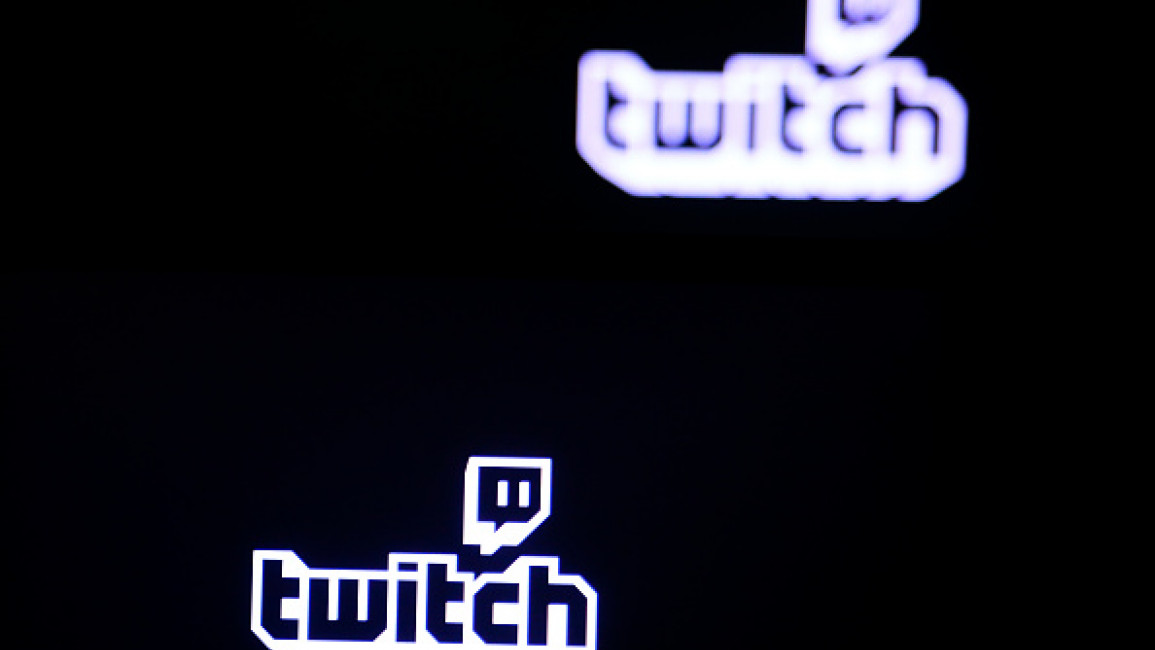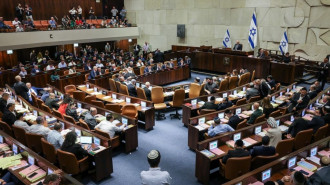Twitch sparks calls for boycott after labelling 'Zionist' as racial slur
Pro-Palestine users have rallied against Twitch's updated hate speech policy, which bans the term "Zionist" as a racial slur, sparking calls to boycott the popular live-streaming platform over what many see as a breach of free speech.
In an announcement posted to its official blog last Friday, Twitch said it "prohibits the use of terms that may not be harmful or abusive in isolation but can be used as a slur or to denigrate others in certain contexts".
According to the policy, it is acceptable to use the term "Zionist" when discussing the ideology or political movement that led to the founding of Israel, but it should not be used to insult or degrade Jews or Israelis.
Using social media platforms, users have called for a boycott of Twitch, citing concerns that pro-Palestine sentiments were being suppressed.
"I deleted my Twitch account as Zionism is terrorism. It always has been for over 80 years and they’re currently carrying out genocide of the Palestinians after 76 years of ethnic cleansing and 56 years of illegal brutal occupation," one user wrote on X.
"Boycott Twitch. Protecting the term Zionist as a negative adjective is the same as protecting someone from calling a Nazi a Nazi. This antisemitism ruse is so tired," another user wrote in a separate post.
Many argued that the term "Zionist" and its use in online discussions referred to a political stance rather than a racial or religious group.
Jillian York, the director of International Freedom of Expression at digital rights organisation The Electronic Frontier Foundation (EFF), told The New Arab that Twitch's updated policy was "clearly a political decision".
"While the term can be used as a proxy to mean "Jewish," censoring it completely, without any nuance, disables criticism of the 19th-century political ideology," York said.
York further expresses concerns about the long-term effects of the ban, as she explained the move "curtails political discussion, and will have a chilling effect on content creators".
"At the same time, it will also encourage speech substitutions or workarounds, which can lead to further confusion of ideas," York said.
Jake Steinberg, a Jewish Cuban-American gaming content creator and writer, told The New Arab that Twitch's decision to flag "Zionist" as a slur undermines diversity of thought.
He noted significant dissent against Zionism within Jewish communities, with many increasingly opposing the movement "on ethical or religious grounds".
"It silences the capacity for Jewish voices, especially those of anti-Zionist Jews like myself, to wrestle with policies and ideologies carried out in the name of Zionism," he added.
"Twitch’s policy may claim not to restrict criticism of Zionism as a political ideology, but policies do not live in the abstract—they live in the real world, where fear and confusion shape the contours of public discourse."
Steinberg, who has openly shared his experiences as an anti-Zionist Jew in online spaces and advocated for greater inclusivity in the gaming industry, criticised Twitch for yielding to pressure from groups seeking to silence criticism.
He described the platform's decision as "bad form," accusing it of "bending the knee to this kind of conservative brigading."
"Streamers, unsure of the line they must not cross, may choose silence over engagement, their audiences left adrift in ignorance or disengagement," Steinberg continued.
"And perhaps that is the point. In the absence of clarity, what thrives is the status quo, unchallenged and unexamined."
However, Steinberg argued against the effectiveness of boycotts in this case, stressing that Twitch, alongside other media avenues, was "already a bastion of conservative rhetoric".
"To abandon the few prominent leftist streamers on the platform, such as Hasan Piker, would mean ceding the significant ground and genuine reach they’ve worked hard to build," he said.
"It would mean abandoning the reach, the influence, the possibility of resistance that they represent," he said, adding: "It would hand victory to those bad actors—those who seek to smother criticism of Israel entirely, who want platforms like Twitch sanitized of dissent. To leave the space is to cede it entirely, and that is a kind of defeat I cannot endorse."
Amid growing scrutiny of Twitch, pro-Palestine supporters online have defended Hasan Piker, a prominent political commentator and streamer, against the backlash.
Piker has also faced pressure from pro-Israel lobby groups calling for his removal from the platform, following accusations of "antisemitism".
The loudest calls against Piker were sparked by US Congressman Ritchie Torres and the Anti-Defamation League (ADL), which had also been behind the pressures on Twitch that led to the platform's policy change.
Both Torres and the ADL argued that Twitch was allowing "hate against Jewish people" to persist while insisting that one of the platform's most influential pro-Palestine voices should face repercussions for his views.
Piker, who has also been targeted by online pro-Israel advocates, notably Ethan Klein of H3H3 Productions, has denied spreading anti-Jewish sentiment.
He stated on his livestreams that the comparison was shocking, given the well-documented history of antisemitism associated with controversial far-right internet personalities.
Video game content creator Jake Steinberg stated that while he personally does not agree with boycotting Twitch, he believes the decision is part of a broader trend of digital platforms restricting pro-Palestine rhetoric.
"To witness the ongoing genocide in Gaza, to see it echoed in corporate complicity, is to carry an unbearable grief. I cannot tell someone who feels this so viscerally that they must stay, that they must endure this platform’s betrayals in the hope of change," he argued.
He added, "When platforms like Twitch silence critique of ideologies like Zionism, they do more than limit speech—they reinforce this broader, brutal calculus."
"They teach us that power will always protect itself, that justice is a dream deferred, and that those who speak out risk being cast into the void. Yet, the danger of disengagement is greater still. If we retreat, if we allow this silence to stand, we cede the possibility of something better."
The New Arab has contacted Twitch for comment.




 Follow the Middle East's top stories in English at The New Arab on Google News
Follow the Middle East's top stories in English at The New Arab on Google News


